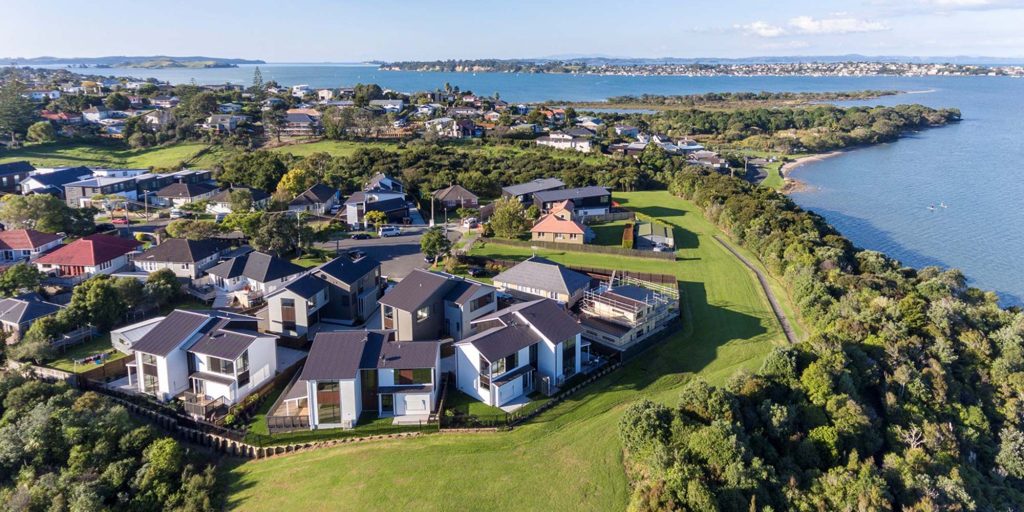A house is the biggest purchase of your life, and a mortgage is typically the largest financial commitment you’ll make. In preparation for your first mortgage, you may need to evaluate your saving and spending habits, disposable income, and look at your short-term debt. Here are some handy tools to make things simple when it comes to considering your financial situation and working out exactly where you stand in relation to buying your own home.
Sorted
Sorted is a free, government-funded service that offers impartial information to help you manage money throughout life, including an excellent mortgage calculator, which is a handy first step in giving you an indication of what you might be able to borrow.
Find out How much can I borrow?
Use this handy Sorted Mortgage Calculator
Settled
Settled is another excellent government resource, providing comprehensive, independent information and guidance on buying and selling property.
Take advantage of the Settled Easy Mortgage Calculator
Settled also offers resources for first home buyers

Explore your deposit options
A deposit is the amount you’ll need to initially pay on settlement for your new home, ensuring you own part of the home up front. The remainder is usually covered by a mortgage and repaid to the lender or bank over a number of years at an agreed interest rate. A larger deposit means you will pay less interest to the bank over the home loan period. Getting together a large enough deposit to put down on a house is often one of the biggest barriers for many first home buyers.
That’s why taking the time to explore your finance options, including the grants below, could pay off when it comes to buying your first home, and fast-track your ability to be deposit-ready! In New Zealand we have several great assistance schemes to help first home buyers. Ensure you thoroughly review the below, to see what you might qualify for.
Depending on your eligibility, your deposit options could include savings, funds from KiwiSaver first-home withdrawal, a First Home Grant, first home partnership with Kāinga Ora, lower-equity loans, KiwiBuild, the Progressive Home Ownership Fund, or assistance from family or friends. Below is a summary of each of these, so you can begin to explore your deposit options.
Kāinga Ora’s First Home Decision Tool is a helpful guide to what home-ownership products or assistance you may be eligible to apply for.
The Ministry of Housing and Urban Development offers a variety of First Home products to help eligible first-time buyers
Important note:
The criteria for grants changes from time to time. Always double-check the relevant website for the latest information, and make sure your lawyer reviews all paperwork before you sign it.
Sort your savings
Get a head start on saving for your home by transferring a regular part of your pay into a separate account, setting up a clear plan and a savings goal. Be consistent with your saving, as even a small amount each week will add up over time. Saving money is a challenge that requires sacrifices. However, few first-time buyers regret this difficult first step, once they have the keys to their new home.
For an excellent guide on how to save money and “pay yourself first” to save for your home deposit, check out Sorted’s Guide.
Sorted also has this handy guide with saving tips:

KiwiSaver First-Home Withdrawal
KiwiSaver is a great place to save for your first home. As a KiwiSaver member, you can contribute 3%, 4%, 6%, 8% or 10% of your before-tax pay to a KiwiSaver fund of your choice. Your employer should contribute 3%. On top of that, the government contributes 50c for every $1 you save each year, up to $1042.86 – that’s up to $521.43 of free money, which compounds and grows over time. You can also voluntarily make regular or one-off contributions, including if you are self-employed.
Since KiwiSaver is ‘locked in’, it’s a great way to stop you from dipping into savings, even if you’re tempted to do so. Your savings and employer/government contributions are invested by your fund provider and grow over time. Usually, the return is higher than you’d make in a term deposit, and you pay less tax than you would in a savings account meaning your money grows faster.
You need to have been a member of KiwiSaver for at least three years before you are eligible to withdraw funds for your first home. You also need to intend to live in the house yourself – ie, you cannot purchase the home as an investment property. There is no income limit for people using KiwiSaver First-Home Withdrawal, and no price limit on the home you’re purchasing. Eligible KiwiSaver funds include personal contributions, employer contributions, government contributions, and growth.
Contact your KiwiSaver provider for more information to find out if you are eligible for a first home buyer’s KiwiSaver withdrawal. KiwiSaver funds can only be used towards your settlement funds, not towards any part of the deposit. If successful, the KiwiSaver withdrawal will be paid to your lawyer on the unconditional date or before settlement day. Check the KiwiSaver website for eligibility and details.
Check here if you’re eligible to use your KiwiSaver fund as a first home buyer
First Home Grant
If you’ve been contributing to your KiwiSaver for at least three years, you may be eligible for a First Home Grant of up to $10,000 per person for a new home, to help top up your deposit. This is overseen on behalf of the government by Kāinga Ora.
First home buyers of a brand-new house can get $2,000 per person for each of the three (or more) years they’ve paid into the KiwiSaver scheme. This is double what is offered to those buying an existing home ($1,000 for each year). If eligible, you could qualify to receive a maximum of $10,000 per person for five or more years. When two people are buying the house and both qualify, the grant is doubled.
You can apply for a First Home Grant in one of two ways, either for a pre-approval before you start looking for a property to buy, which will give you certainty about how much you may qualify for, or by applying for approval for a house you’ve already found with a signed sale and purchase agreement.
To check if you are eligible for the First Home Grant, including all the detail on income caps and regional house price caps, and to apply, go to Kāinga Ora’s website:
First Home Partner
First Home Partner can help to bridge the gap if your deposit and home loan aren’t quite enough to buy a first home. First Home Partner is a shared ownership scheme offered by Kāinga Ora to help aspiring first home buyers whose deposit and home loan aren’t quite enough to buy a home that meets their needs.
Shared ownership means that you initially split the ownership of your home with a third party who helps you purchase the home – in this case, Kāinga Ora. You are the majority homeowner and occupier, but Kāinga Ora will own a share in the home, which you will then ‘buy out’ over time.
To check if you are eligible and to apply, visit the Kāinga Ora website
Lower equity loans
Finding the deposit for your first home can be a struggle. A First Home Loan from Kāinga Ora can make it much easier for you to get into your first home, by lowering the required deposit to 5%. First Home Loans are for first home buyers who can afford to make regular repayments on a home loan, but are having difficulty saving for a deposit.
First Home Loans are issued by selected banks and other lenders and underwritten by Kāinga Ora. This allows the bank or lender to provide loans to first home buyers that would otherwise sit outside of their lending standards.
If you are interested in a First Home Loan, you can discuss your individual circumstances and eligibility with a participating lender. For more information, visit the Kāinga Ora website
KiwiBuild
If you’re looking to buy your first home, KiwiBuild could be an option. KiwiBuild was established by the government in 2018 as part of a broad initiative to address the housing challenges currently facing New Zealanders. There is a price cap on KiwiBuild homes that varies by region, and by number of bedrooms the home has.
The KiwiBuild scheme enables Universal Homes and other developers to bring more affordable homes to market faster for first home buyers. To buy a KiwiBuild home, you need to meet the application criteria and be selected by ballot.
For more information and to submit an application, visit the KiwiBuild website:
Assistance from family or friends
Friends and family may be able to help you in a variety of ways on your home-buying journey. They may offer advice and tips, and be able to support you financially. They may lend funds, make an unconditional gift of money, or act as a guarantor. Talk to your lender or mortgage broker and your lawyer, to find out more about how friends and family can get involved in your new-home journey.
“My advice to my former first home buyer self is that having a good broker and a good lawyer is key. Get all your ducks in a row a few months in advance, including getting your KiwiSaver contribution sorted, so that when you’re ready to press go, you have everything ready.”
Wesley, first home buyer at West Hills
Legal information
Universal Homes is not a financial adviser. The material published in this document is of general nature only, and has been provided as a general information service by Universal Homes solely for information purposes for use by prospective property purchasers and/or investors. This document is not intended, nor capable of being construed as, financial, legal or investment advice or advice on any specific problem or situation. Because the information is general in nature, it has been prepared without taking into account any person’s individual objectives, financial situation or particular needs and may not be relevant to individual circumstances. Before purchasing a property or making any investment, borrowing, insurance or financial planning decisions, you should consult a professional adviser and seek your own investment, accounting, financial, legal, tax and other professional advice. Professional advisers can help vou decide whether your decision is appropriate for you. While every care has been taken to supply accurate information, errors and omissions may occur and no representation or warranty is made as to the accuracy, completeness, reliability, adequacy or reasonableness of the information. Accordingly, Universal Homes accepts no responsibility or liability for any loss caused as a result of any person relying on the information supplied.




